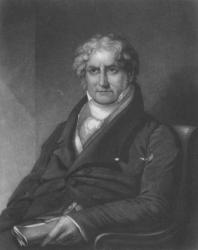Planning worship?
Check out our sister site, ZeteoSearch.org,
for 20+ additional resources related to your search.
- |
User Links
Search Results
Blessed Savior, Thee I Love
Author: George Duffield, Jr. Appears in 161 hymnals Matching Instances: 161 Topics: Testimony Used With Tune: SPANISH HYMN
Blessed Savior, Thee I Love
SPANISH HYMN
Meter: 7.7.7.7.7.7 Appears in 524 hymnals Matching Instances: 53 Composer and/or Arranger: Benjamin Carr Tune Key: A Flat Major Incipit: 17161 53142 17117 Used With Text: Blessed Savior, Thee I Love
SPANISH HYMN
STURTEVANT
Appears in 2 hymnals Matching Instances: 1 Composer and/or Arranger: Benjamin Shepard Incipit: 53211 77567 1322 Used With Text: Blessed Saviour! Thee I love
STURTEVANT
Blessed Saviour! Thee I love
Author: George Duffield, Jr., 1818-88 Hymnal: Offices of Worship and Hymns #1282 (1891)
Blessed Saviour! Thee I love
Blessed Savior, thee I love
Author: George Duffield Hymnal: The Liturgy and the Offices of Worship and Hymns of the American Province of the Unitas Fratrum, or the Moravian Church #1282 (1908)
Blessed Savior, thee I love
Blessed Savior, thee I love
Author: George Duffield Hymnal: Songs for the Sanctuary; or Psalms and Hymns for Christian Worship (Baptist Ed.) #1087 (1869)
Blessed Savior, thee I love
George Duffield

1818 - 1888 Person Name: George Duffield, Jr. Author of "Blessèd Savior, Thee I Love" in The Cyber Hymnal Duffield, George, Jr., D.D., son of the Rev. Dr. Duffield, a Presbyterian Minister, was born at Carlisle, Pennsylvania, Sept. 12, 1818, and graduated at Yale College, and at the Union Theological Seminary, New York. From 1840 to 1847 he was a Presbyterian Pastor at Brooklyn; 1847 to 1852, at Bloomfield, New Jersey; 1852 to 1861, at Philadelphia; 1861 to 1865, at Adrian, Michigan; 1865 to 1869, at Galesburg, Illinois; 1869, at Saginaw City, Michigan; and from 1869 at Ann Arbor and Lansing, Michigan. His hymns include;—
1. Blessed Saviour, Thee I love. Jesus only. One of four hymns contributed by him to Darius E. Jones's Temple Melodies, 1851. It is in 6 stanzas of 6 lines. In Dr. Hatfield's Church Hymnbook it is given in 3 stanzas. The remaining three hymns of the same date are:—
2. Parted for some anxious days. Family Hymn.
3. Praise to our heavenly Father, God. Family Union.
4. Slowly in sadness and in tears. Burial.
5. Stand up, stand up for Jesus. Soldiers of the Cross. The origin of this hymn is given in Lyra Sac. Americana, 1868, p. 298, as follows:—
"I caught its inspiration from the dying words of that noble young clergyman, Rev. Dudley Atkins Tyng, rector of the Epiphany Church, Philadelphia, who died about 1854. His last words were, ‘Tell them to stand up for Jesus: now let us sing a hymn.' As he had been much persecuted in those pro-slavery days for his persistent course in pleading the cause of the oppressed, it was thought that these words had a peculiar significance in his mind; as if he had said, ‘Stand up for Jesus in the person of the downtrodden slave.' (Luke v. 18.)"
Dr. Duffield gave it, in 1858, in manuscript to his Sunday School Superintendent, who published it on a small handbill for the children. In 1858 it was included in The Psalmist, in 6 stanzas of 8 lines. It was repeated in several collections and in Lyra Sac. Amer., 1868, from whence it passed, sometimes in an abbreviated form, into many English collections. [Rev. F. M. Bird, M.A.]
- John Julian, Dictionary of Hymnology (1907)
See also in:
Hymn Writers of the Church
George Duffield
Benjamin Carr

1768 - 1831 Arranger of "SPANISH HYMN" in The Hymnal of The Evangelical United Brethren Church
Benjamin Carr
Anonymous
Composer of "SPANISH HYMN" in Baptist Hymnal (1975 ed) In some hymnals, the editors noted that a hymn's author is unknown to them, and so this artificial "person" entry is used to reflect that fact. Obviously, the hymns attributed to "Author Unknown" "Unknown" or "Anonymous" could have been written by many people over a span of many centuries.
Anonymous


 My Starred Hymns
My Starred Hymns


